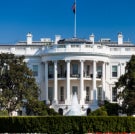A swarm of earthquakes has rattled the Greek island of Santorini, one of the country’s busiest tourist destinations, raising concerns about the stability of the region’s dramatic, volcanic cliffs amidst a decades-long construction boom.
Scientists warn the seismic activity could persist for weeks and haven’t ruled out the possibility of a larger quake.
This has sparked anxieties among experts who have long questioned the sustainability of Santorini’s rapid development from quaint villages into a bustling tourist hotspot.
The tremors prompted the government to declare a state of emergency on Thursday. It shut schools, deployed the army. Meanwhile, thousands of people left on planes and ferries.
Authorities announced landslide warnings for five areas, including Santorini’s main port, and cordoned off areas along the caldera – the rim of an ancient, sunken volcano whose sides plunge into the clear waters of the Aegean.
“They wanted to develop the island and didn’t pay attention to environmental and safety issues,” said Dimitris Papanikolaou, professor of geology at the University of Athens and former head of Greece’s Earthquake Planning and Protection Organisation.
The result, he said, was clear today: luxury hotels with pools and jacuzzis hanging off Santorini’s landslide-prone slopes, where the volcanic soil is soft and unstable.
“Nothing should have been built in this zone,” Papanikolaou said. “It’s a danger zone for as long as the seismic activity lasts.”
Excessive tourism has raised concerns about water shortages and overcrowding across Greece in recent years. But Santorini is an extreme example. Millions visit its whitewashed cobbled streets and blue-domed buildings each year.
Mathaios Kourgialis, who owns a small hotel at the top of the caldera, has received several cancellations this week.
“If we continue for another couple of months with this situation, the season will be lost,” he said
Natural disasters are not new to the island, which was formed by a volcanic eruption in 1600 BC and which experienced a devastating earthquake in 1956. A modern building boom began in the 1980s to lure back tourists.
Even before the latest earthquakes, experts called for studies to assess whether buildings needed reinforcements.
In 2021, a report by the Hellenic Society for Environment and Cultural Heritage commissioned by the island’s authorities said there was an urgent need for a soil engineering study to assess the safety of the buildings on the caldera.
Citing data from the Technical Chamber of Greece, it found many buildings had no permits, nearly a quarter of which where tourism businesses.
“It is crucial…to immediately check the arbitrary construction taking place within the caldera,” the report said.
The environment ministry halted construction on the caldera in November for a year and has obliged owners to complete risk assessments or face having permits removed, said Dimitris Bakoyiannis, its secretary general for spatial planning and urban environment.
Prime Minister Kyriakos Mitsotakis urged calm when he visited the island on Friday and defended construction standards in an interview with Reuters.
During his visit, Mr Mitsotakis inspected emergency preparedness facilities and announced a three million-euro (£2.5 million) funding package for constructing an emergency evacuation route in the southern part of the island.
“We are preparing for the worst while hoping for the best. That’s what a serious and organised state must do,” Mr Mitsotakis said during a meeting with local officials.
The heightened seismic activity has prompted authorities to implement additional precautionary measures, including restricting traffic in areas listed as vulnerable to rockslides.
Army trucks have also brought electricity generators to Santorini, while rescuers were deployed earlier this week.
Mr Mitsotakis visited Santorini a day after the government declared a state of emergency to allow authorities to have faster access to state resources.
Source: independent.co.uk



